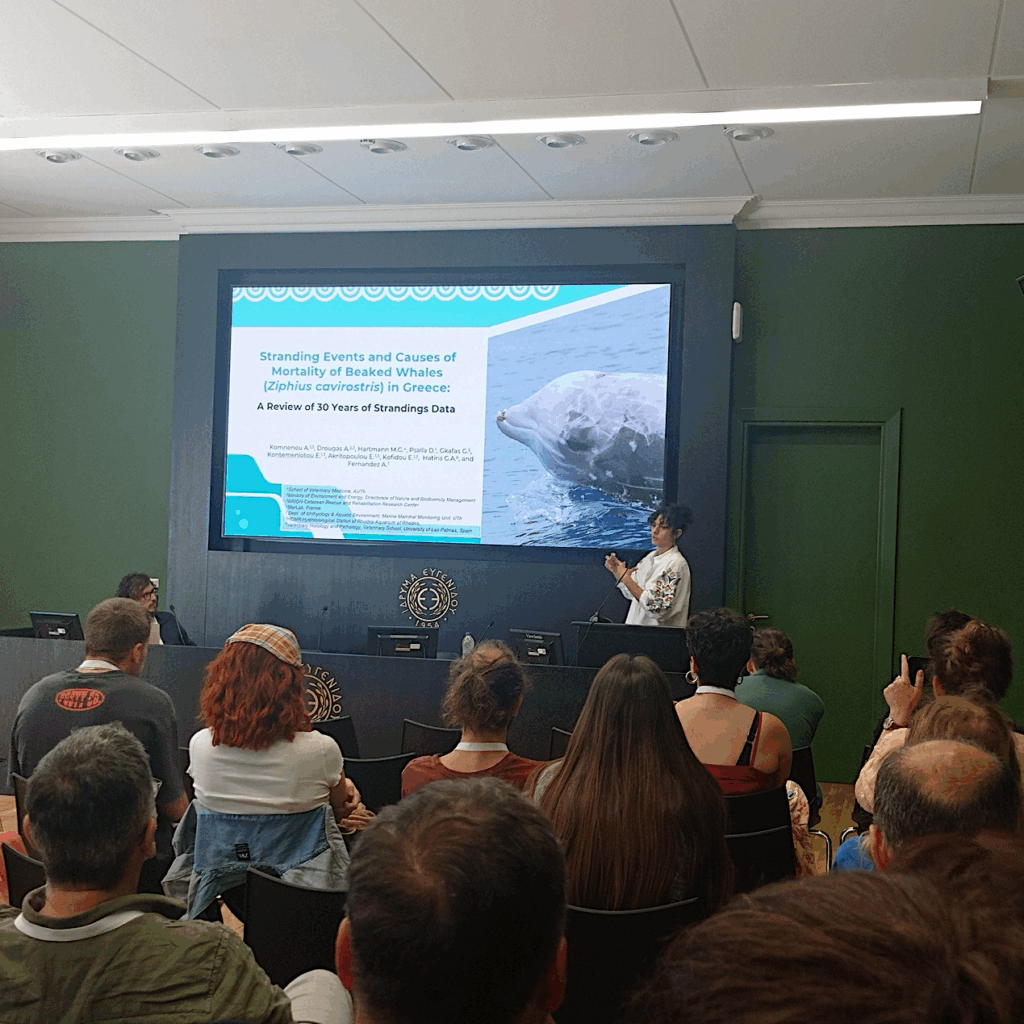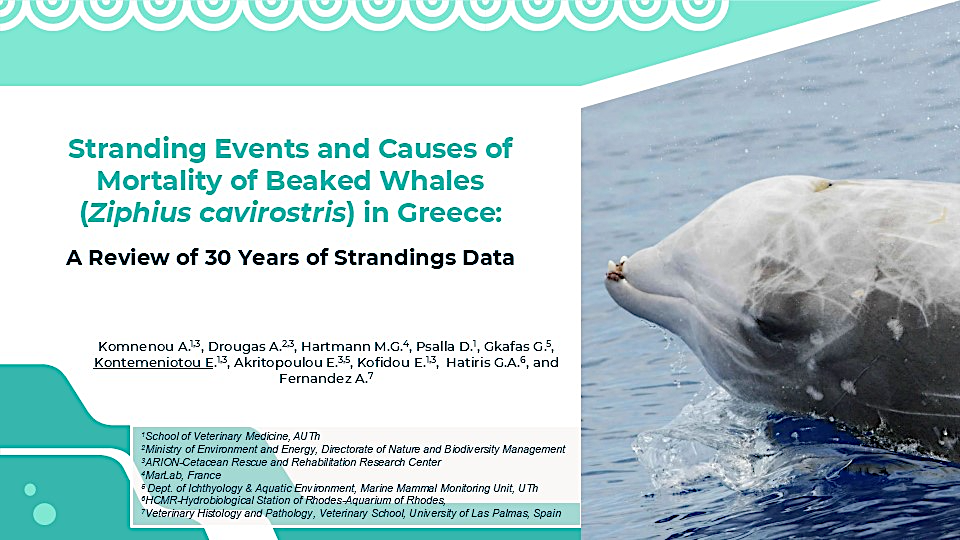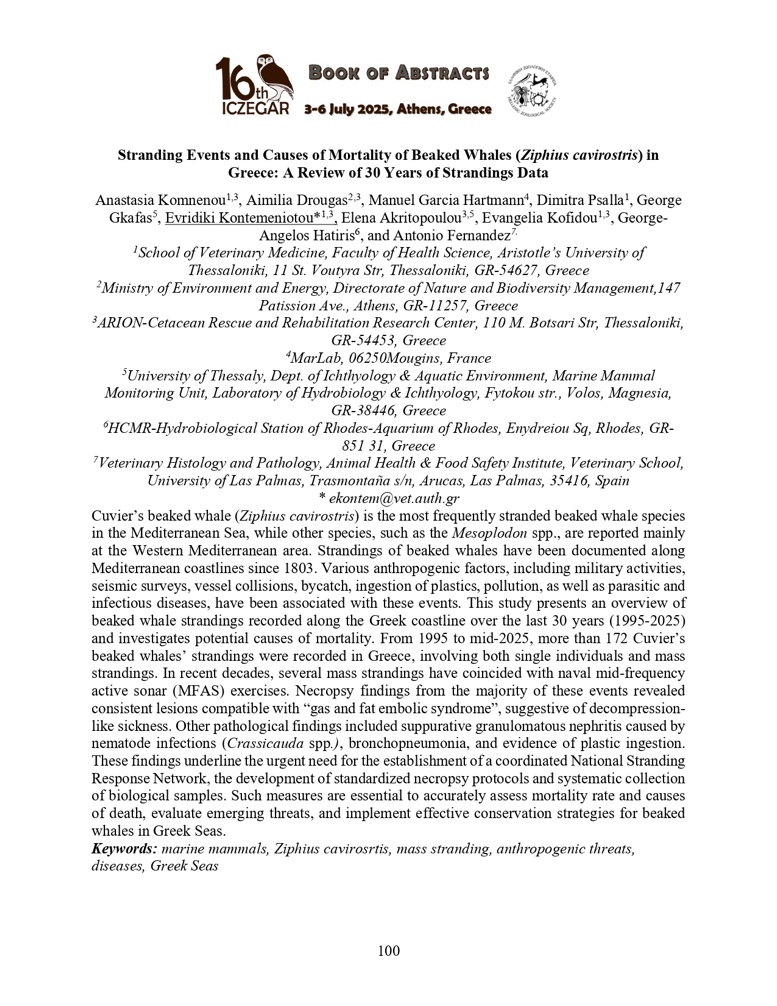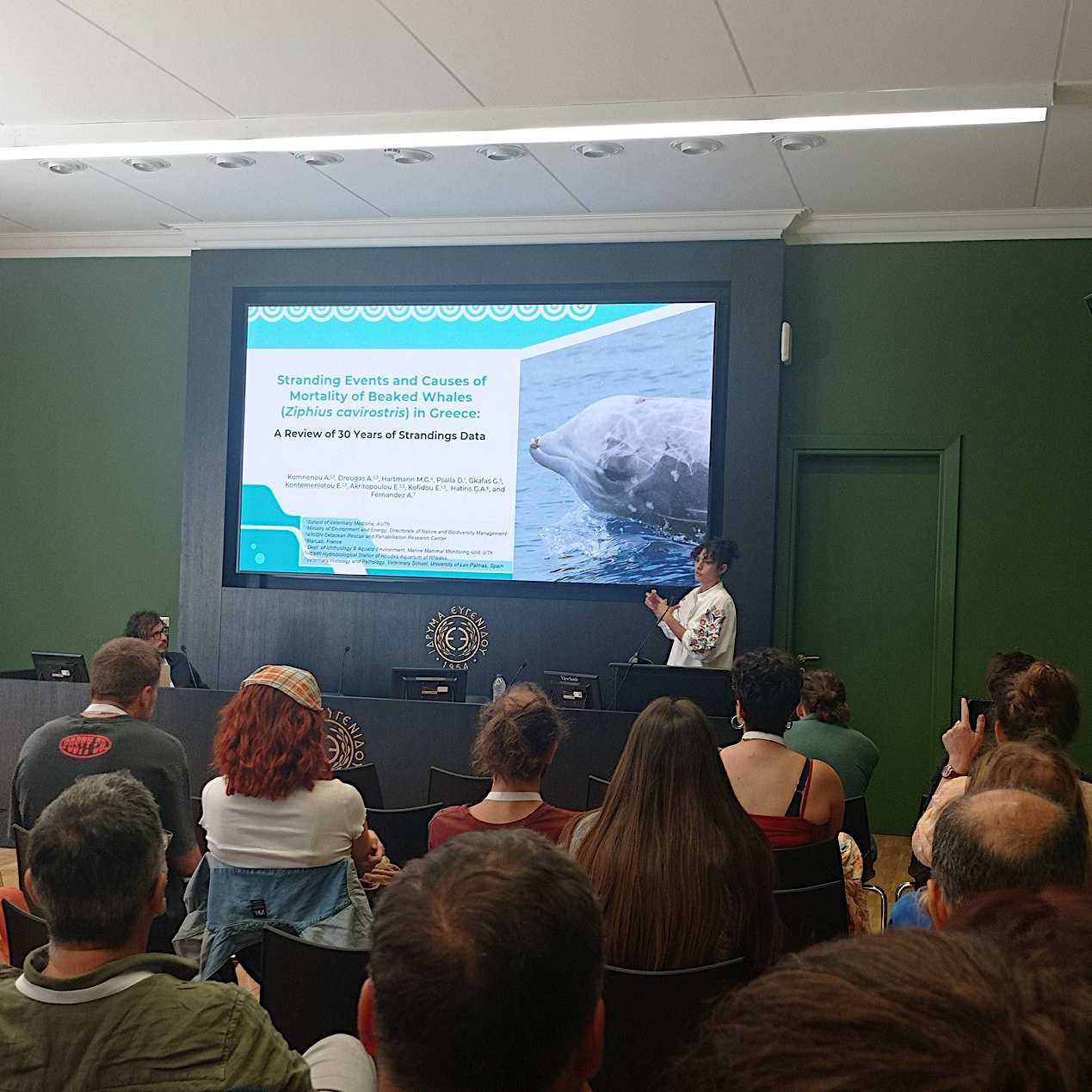The Research Center for Cetacean Rescue and Care “ARION” participated in the 16th International Congress “ICZEGAR”, (16th International Congress On The Zoogeography And Ecology Of Greece And Adjacent Regions) organized by the Hellenic Zoological Society and WWF Greece in Athens from 3-6 July 2025, at the Eugenides Foundation in Athens.
Mrs. Evridiki Kontemeeniotou, Veterinarian, DVM, MSc., PhD Candidate at the Exotic and Wildlife Unit of the Department of Veterinary Medicine, Aristotle University of Thessaloniki. “Stranding Events and Causes of Mortality of Beaked Whales (Ziphius cavirostris) in Greece: A Review of 30 Years of Strandings Data” with results from 30 years of research and recording by “ARION”, regarding strandings of beaked whales (mainly Cuvier’s whales (Ziphius cavirostris) in the Greek seas (1995-2025) and their main causes of mortality (1995-2025).

Specifically, the work was based on the “ARION” extinction database and the results of laboratory tests on zebrafish tissue samples collected during the necropsy/necropsy process. The specialised analyses of the samples were mainly carried out in the accredited laboratories of the Department of Veterinary Medicine of the Aristotle University of Thessaloniki (AUTH). During the post-mortem investigation of specific cases of extinction (performing necropsies/ necropsies and sampling, analysis of samples, etc.), specialized research institutes and academic institutions in Greece and abroad as well as public services cooperated under the coordination of “ARION”. Among them are the Departments of Veterinary Medicine of the Aristotle University of Thessaloniki and the University of Las Palmas of the Canary Islands in Spain, the Marine Mammal Biomonitoring Unit of the University of Thessaly (PTH), the MarLab in France, the Ministry of Environment and Energy (MoEF) and the Rhodes Hydrobiological Station of the Hellenic Centre for Marine Research (HCMR).

The writing of this study was done with the participation of all the above mentioned stakeholders and the summary is available on the social media networks of ARION (Facebook & Instagram) and on the scientific platforms of ARION (LinkedIn).

In summary, the total number of Z. cavirostris animals washed up on the Greek coast during the period 1995-2025, amounts to at least one hundred and seventy-two (172) animals, according to the historical record of “ARION”. Of these incidents, the individual strandings of zebra fish due to pathological causes had a wide geographical distribution in the Greek seas. In contrast, the atypical mass strandings recorded for this species, which were associated with anthropogenic threats, in particular underwater noise pollution, were exclusively related to strandings in the Hellenic Trench area, which is an important habitat for the species’ populations in the Eastern Mediterranean.
Among these incidents, there were also several live zebra boils, which were attended by first aid and support efforts by the ARION rescue network in the field. Some of the animals inevitably ended up because, as shown by the laboratory analyses of the samples collected, they had contracted serious and fatal diseases such as Decompression-like Sickness and parasitic arteritis due to the nematode parasite Crassicauda spp. Furthermore, a constant and recurrent threat to this species over the years has been pollution and, in particular, the ingestion of foreign bodies such as plastic and other litter, leading to the gradual emaciation of the animal (due to malnutrition) and ultimately to its death.
The conclusions of the present study constitute, among other things, valuable data for the institutionalization and operation of the Nationally Coordinated Network of Marine Wildlife Species Surges of the Ministry of Environment and Natural Resources in order to promote appropriate management-response practices to surges as well as, post-mortem research on the causes of extinction/death in order to update and complete the knowledge and necessary policies on the threats and pressures facing the populations of zebra finches in Greece.




